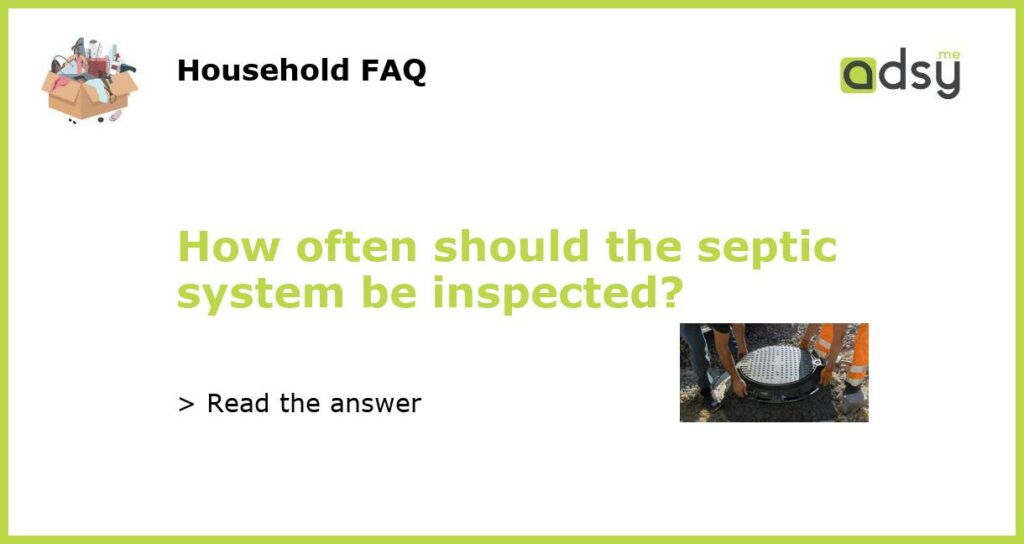Septic system inspection: How often is it necessary?
As a homeowner with a septic system, you may be wondering how often you should have your system inspected. The frequency of septic system inspections depends on a variety of factors, including the size of your household, the age of your system, and local regulations. In general, it is recommended that you have your septic system inspected every three to five years, but there are circumstances that may require more frequent inspections.
The importance of regular septic system inspections
Regular septic system inspections are crucial for maintaining the health and function of your system. During an inspection, a professional will check for any signs of damage or malfunction, such as leaks, clogs, or excess moisture in the drain field. Detecting and addressing these issues early on can prevent expensive repairs and help prolong the lifespan of your septic system.
Factors that affect the frequency of septic system inspections
While the general recommendation for septic system inspections is every three to five years, several factors can influence the frequency at which you should have your system inspected:
Household size
The size of your household can impact how quickly your septic system fills up. If you have a larger family or frequently have guests, your septic system may need to be inspected more often to ensure it is functioning properly and can handle the increased usage.
System age and condition
The age and condition of your septic system can also affect the frequency of inspections. Older systems or systems that have not been properly maintained may require more frequent inspections to monitor for potential issues.
Water usage
High water usage can put additional strain on your septic system. If you have a large household or engage in activities that require a significant amount of water, such as frequent laundry or using a jacuzzi, you may need to have your system inspected more frequently.
Local regulations
The frequency of septic system inspections may also be dictated by local regulations. Some areas have specific requirements for septic system inspections, such as mandatory inspections every one to two years. It is important to check with your local health department or regulatory agency to ensure you are in compliance with any requirements.
Signs that your septic system may need an inspection
In addition to regular inspections, it is important to be aware of any signs that your septic system may be experiencing issues. If you notice any of the following signs, it may be time to schedule an inspection:
Slow draining fixtures
If you have multiple fixtures in your home, such as sinks or toilets, that are draining slowly or backing up, it could indicate a problem with your septic system. An inspection can help identify the cause of the issue and determine the appropriate course of action.
Foul odors
If you notice persistent foul odors in your yard or near your septic system, it could be a sign of a problem. An inspection can help identify any leaks or malfunctions that may be causing the odor.
Standing water or lush vegetation
Excess moisture in your drain field can indicate a problem with your septic system. If you notice standing water or areas of unusually lush vegetation in your yard, it may be a sign that your system is not functioning properly and requires inspection.
Sewage backups
If sewage backs up into your home or drains, it is a clear indication that there is a problem with your septic system. Immediate inspection and repairs are necessary to prevent further damage and health hazards.
Increased water bills
If you notice a sudden increase in your water bills without a corresponding increase in water usage, it could indicate a leak or malfunction in your septic system. An inspection can help identify the source of the issue and prevent further water waste.
The bottom line
Regular septic system inspections are essential for maintaining the health and function of your system. While the general recommendation is every three to five years, factors such as household size, system age, water usage, and local regulations can influence the frequency of inspections. Additionally, it is important to be aware of any signs that your septic system may need attention and to schedule an inspection promptly if you notice any issues. By taking proactive measures, you can prevent costly repairs and ensure the longevity of your septic system.

